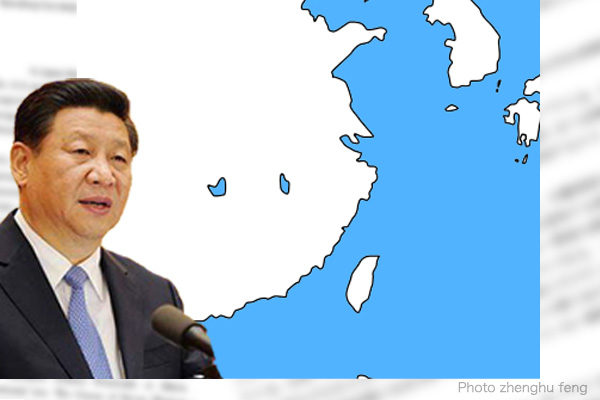French President Emanuel Macron visited China in early April to meet Chinese President Xi Jinping. On his way back home, he indicated his view that Europe should be neutral to the Taiwan issue. He came under fire for the remarks that were criticized for failing to represent Europe. After returning home, Macron made adjustments and explained that France and Europe retained their stance of not allowing any unilateral change to the status quo. But his remarks may have revealed his real feelings that a Taiwan contingency is a problem for someone else not for Europe.
The strategic value of Taiwan for Europe differs far from that for Japan geopolitically. A Taiwan contingency may be a serious international matter for Europe but it amounts to a “Japan contingency” for Japan. China’s annexation of Taiwan, whether it is military or peaceful, should be a matter of great national concern for Japan. Although only the military annexation tends to be thought as problematic, we need to correct such thinking.
Nightmare of PLA deployment in Taiwan
On August 10 last year, China published its third white paper on Taiwan, deleting a pledge seen in the first and second white papers. The pledge said that after its unification with Taiwan, China would allow Taiwan to retain its own military forces and would refrain from dispatching Chinese military forces to Taiwan. Xi has clearly abandoned the principle of “one country, two systems” for Taiwan and decided to send People’s Liberation Army to Taiwan.
Even if the unification is peaceful, the entry of the PLA Navy and Air Force into Taiwan will allow China to take control of waters and airspace around Taiwan. The first island chain linking Japan, Taiwan and the Philippines will lose its function of containing Chinese forces, leading the U.S. Navy’s presence to be set back. China will take control of the sea lanes through which Japan imports 90% of its energy supply and 60% of its food supply. China’s strategic nuclear submarines will freely enter the Pacific Ocean via the Bashi Channel between Taiwan and the Philippines. As a result, the U.S.-China strategic nuclear balance will collapse, breaking U.S. nuclear umbrella extended to Japan. Japan will become tributary to China.
Counter China’s influence-buying operations
At the Chinese Communist Party’s 20th Congress in October last year, Xi said, “We will continue to strive for peaceful reunification with the greatest sincerity and the utmost effort, but we will never promise to renounce the use of force, and we reserve the option of taking all measures necessary.” Facing Russia’s uphill battle in Ukraine, China, while preparing for the use of force, may have launched a “cognitive warfare” to lead Taiwanese citizens to lose their willingness of resistance, paving a way towards “peaceful” unification. Its influence-buying operations for the cognitive warfare have already started. When Taiwan is isolated, with its citizens losing their willingness of resistance under intimidation and threatening, the peaceful unification will be completed. At present, most of Taiwanese citizens are unwilling to accept the unification, but understand Taiwan cannot face off against China on its own.
In 2014, Russia used the so-called hybrid warfare that combined military and nonmilitary operations, as well as an artful cognitive warfare, for three weeks to almost bloodlessly annex Ukraine’s Crimea Peninsula that has population of some 3 million. Xi must have seen Russia’s successful annexation of Crimea. Don’t allow Taiwanese citizens to have a sense of isolation or powerlessness. While proceeding with defense buildup in preparation for China’s use of force, Japan must enhance solidarity with Taiwanese citizens and powerfully promote Japanese version of influence-buying operations to counter China’s cognitive warfare.
Kunio Orita is a member of the JINF Planning Committee and a special professor at Reitaku University. He is a retired Lieutenant General of the Japan Air Self-Defense Force.


